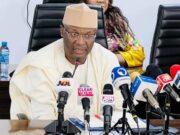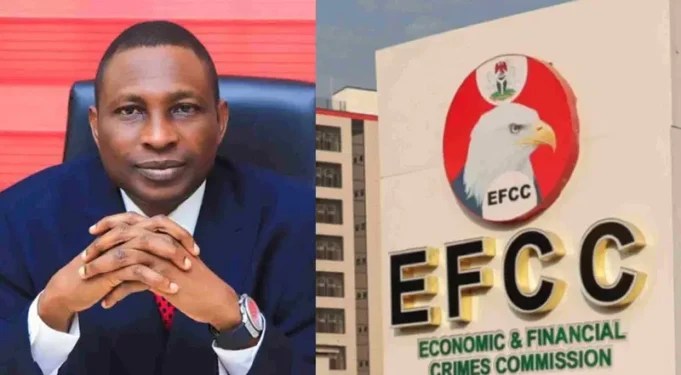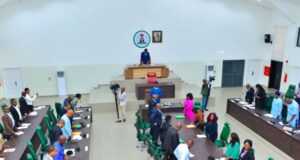The Chairman of the Economic and Financial Crimes Commission (EFCC), Mr. Ola Olukoyede, has announced the dismissal of two staff members over corruption allegations.
Olukoyede made this disclosure during the opening of the 6th Annual Criminal Law Review Conference organized by the Rule of Law Development Foundation in Abuja.
The five-day conference, themed “Optimizing the Administration of Criminal Justice in Nigeria: Navigating Emerging and Systemic Challenges of Insecurity and Economic Hardship,” also provided a platform for Olukoyede to address ongoing reforms within the EFCC.
According to Olukoyede, the two officials were dismissed two weeks ago for engaging in corrupt practices.
He emphasized that the agency would not only dismiss corrupt staff but would also pursue legal action against them.
“You can’t be fighting corruption while your hands are dirty,” Olukoyede remarked, reinforcing the importance of maintaining integrity within the commission.
The EFCC chairman vowed to hold his staff accountable, stating that any official found guilty of corruption would not only face dismissal but also prosecution.
“We are already preparing the case files for those we have dismissed. If an EFCC staff member can’t publicly stand tall and say they haven’t taken anything illegitimately, then they are not fit to serve,” he added.
Olukoyede also addressed the broader issue of ethical conduct within the EFCC, acknowledging that while the organization has made significant progress, there are still bad apples within the system.
“We must make up our minds to work together and do the right thing. Any corrupt staff will be shown the way out,” he said, further noting that even in an organization as committed to justice as the EFCC, there are always challenges.
The EFCC chairman also reflected on his own experience, revealing that he had been investigated for two years while serving as the commission’s secretary.
“I know what it means to be subjected to investigation. I’ve been there myself,” he said, emphasizing his personal commitment to upholding the rule of law and ensuring that the EFCC plays a key role in stimulating Nigeria’s economy while combating corruption.
In his closing remarks, Olukoyede stressed the importance of integrity, ethics, and professional standards in legal practice, noting that corruption must have no place in the nation’s development.
He also welcomed constructive criticism of the EFCC, urging it to be done in a responsible manner for the betterment of the country. “What do we gain by running down our institutions?” he asked.

















